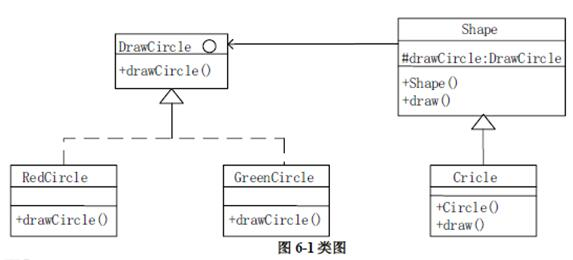有如下程序: nclude using namespace std; class Stack{有如下程序: #nclude<iostremn> using namespace std; class Stack{ public: Stack(unsigned n=10:size(n){rep_=new int[size];top=O;} Stack(Stack&s):size(s.size) { rep_=new int[size]; for(int i=0;i<size;i++)rep_[i]=s.rep
题目
有如下程序: #nclude<iostremn> using namespace std; class Stack{ public: Stack(unsigned n=10:size(n){rep_=new int[size];top=O;} Stack(Stack&s):size(s.size) { rep_=new int[size]; for(int i=0;i<size;i++)rep_[i]=s.rep_[i]; top=s.top; } ~Stack(){delete[]rep_;} void push(int a){rep_[top]=a; top++;} int opo(){--top;return rep_[top];} bool is Empty()const{return top==O;} pavate: int*rep_; unsigned size,top; }; int main() { Stack s1; for(int i=1;i<5;i++) s1.push(i); Stack s2(s1); for(i=1;i<3;i++) cout<<s2.pop()<<','; s2.push(6); s1.push(7); while(!s2.isEmpty()) cout<<s2.pop()<<','; return 0; } 执行上面程序的输出是
A.4,3,2,1
B.4,3,6,7,2,1
C.4,3,6,2,1
D.1,2,3,4
相似考题
更多“有如下程序: #nclude<iostremn> using namespace std; class Stack{ ”相关问题
-
第1题:
有如下程序:includevoid fun(int& x, int y){int t=x;x=y;y=t;}int main (){int 有如下程序: #include <iostream> void fun(int& x, int y){int t=x;x=y;y=t;} int main () { int a[2]={23,42}; fun(a[1],a[0]); std::cout<<a[0]<<","<<a[1]<<std::endl; return 0; } 执行后的输出结果是
A.42,42
B.23,23
C.23,42
D.42,23
正确答案:B
解析:本题考核函数的调用以及参数值的传递。函数fun中的第一个参数采用引用传值方式,函数中对形参值的改变同样作用于实参上;第二个参数采用按值传值方式,函数中对形参的操作不会影响到实参。所以main函数中调用fun函数后,a[1]的值被修改为a[0]的值,而a[0]的值没有改变。 -
第2题:
有如下程序:inchdevoid fun(int &x,int y){int t=x;x=y;y=t;}int main(){int a 有如下程序: #inchde<iostream.h> void fun(int &x,int y){int t=x;x=y;y=t;} int main() { int a[2]={23,42); fun(a[1],a[0]); std::cout<<a[0]<<","<<a[1]<<Std::endl; return 0; } 执行后的输出结果是( )。
A.42,42
B.23,23
C.23,42
D.42,23
正确答案:B
-
第3题:
阅读下列说明和C++代码,填写程序中的空(1)~(6),将解答写入答题纸的对应栏内。
【说明】
以下C++代码实现一个简单绘图工具,绘制不同形状以及不同颜色的图形。部分类及其关系如图6-1所示。

【C++代码】
#include?#include?using?namespace?std;class?DrawCircle?{??????//绘制圆形,抽象类? ? ? public: (1);//定义参数为?int?radius,?int?x,?inty? ?virtual~DrawCircle()?{?}};class?RedCircle:public?DrawCircle?{????//绘制红色圆形? ? ? ? public: void?drawCircle(intradius,?int?x,?int?y)?{cout?<?drawCircle?=?drawCircle;? }? ?virtual~shape()?{?}? public:? ?virtual?void?draw()?=?0;};class?Circle:public?Shape?{????//圆形? ? private:? ? ?int?x,y,radius;? ? public:? Circle(int?x,inty,int?radius,DrawCircle?*drawCircle)? (3)? {? this->x?=?x;? ?this->y?=?y;? ? this->radius?=?radius; }? ? ? public:? void?draw(){? drawCircle?-> (4); }};int?main(){Shape?*redCirclenew?Circle(100,100,10,????(5)????);//绘制红色圆形? Shape?*greenCircle=new?Circle(100,100,10, (6)??);//绘制绿色圆形redCircle >draw();? ?greenCircle?->draw();? ?return?0;}答案:解析:(6)(1)void drawCircle (int radius,int x,int y)
(2)DrawCircle*drawCircle
(3)drawcircle
(4)drawCircle(radius,x,y)
(5)new RedCircle()
(6)new GreenCircle()【解析】
第一空是填接口里面的方法,在接口的实现里面找,可以发现应该填void drawCircle (int radius,int x,int y)。
第二空可以根据后面this drawCircle=drawCircle判断,这里应该有一个drawCircle属性,因此应该填)DrawCircle drawCircle。
第三空这里填drawcircle,用-> drawcircle来引用父类的成员。
第四空调用drawCircle(radius,x,y)方法。
第五、六空分别创建一个红色圆形对象和一个绿色圆形对象作为Circle里面的实参。 -
第4题:
如下程序的输出结果是includevoid fun(int & X,inty){intt=x;x=y;y=t;}int main(){in 如下程序的输出结果是 #include<iostream> void fun(int & X,inty){intt=x;x=y;y=t;} int main( ){ int a[2]={23,42}; fun(a[1],a[0]); std::cout<<a[0]<<","<<a[1]<<std::endl; return 0; }
A.42,42
B.23,23
C.23,42
D.42,23
正确答案:B
解析:参数X是引用传递,传递的是地址:参数Y是值传递,函数fun( )是做X与Y值交换,交换后X的值要被回传给a[1],此时a[1]=a[0]=23。 -
第5题:
实现动态分配对象列表的类是( )。
A.System类
B.Class类
C.Vector类
D.Stack类
正确答案:C
